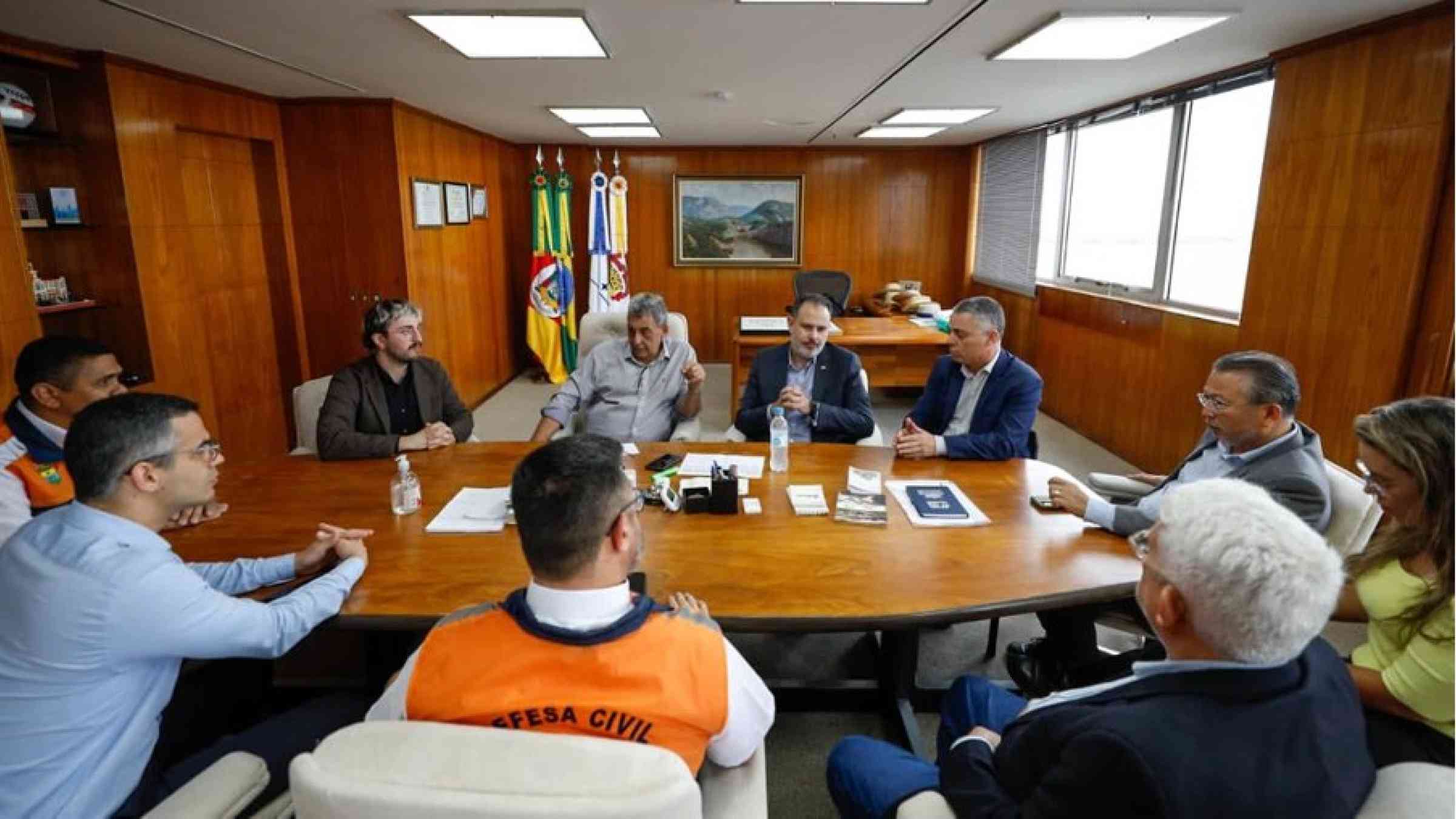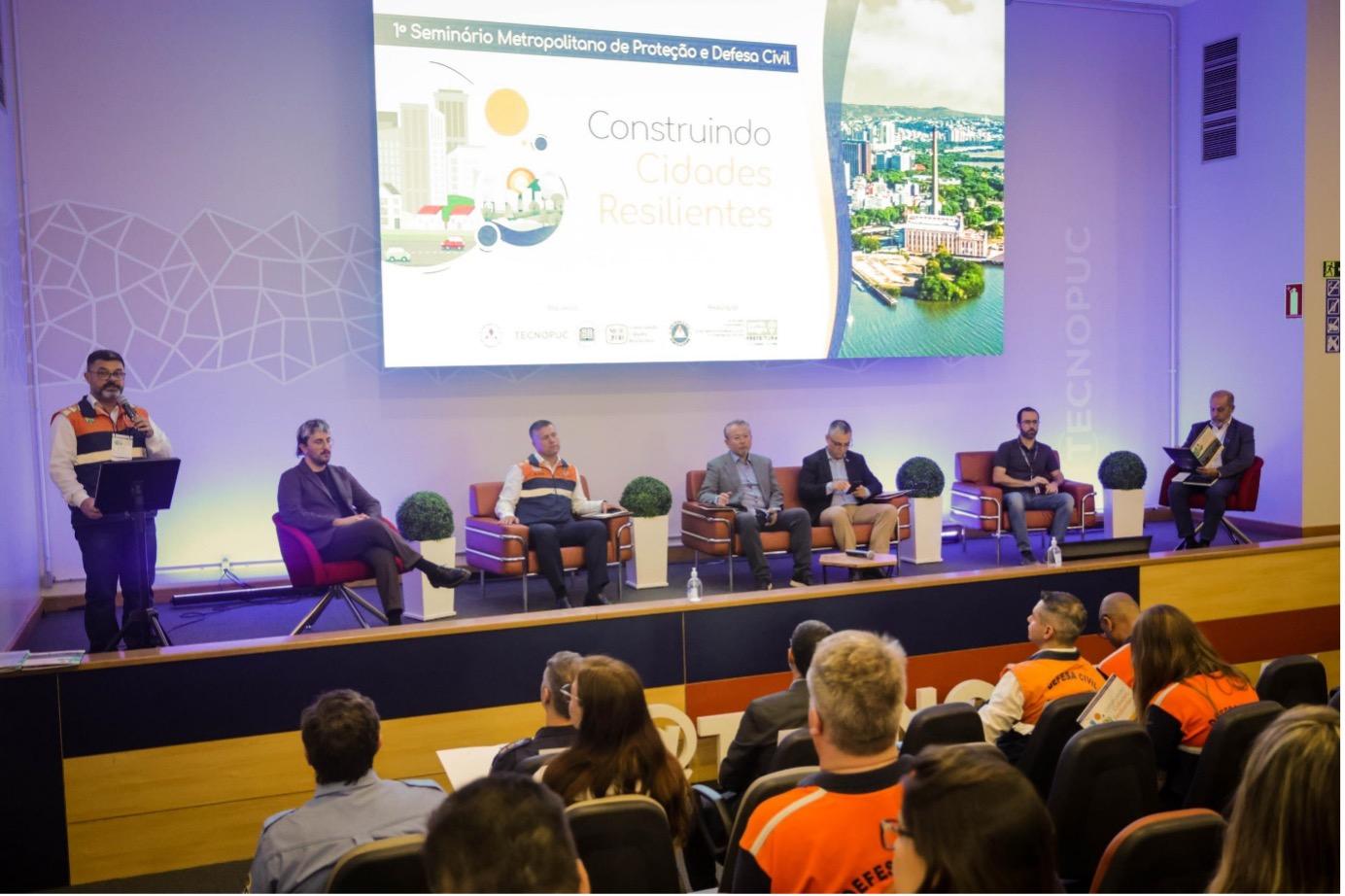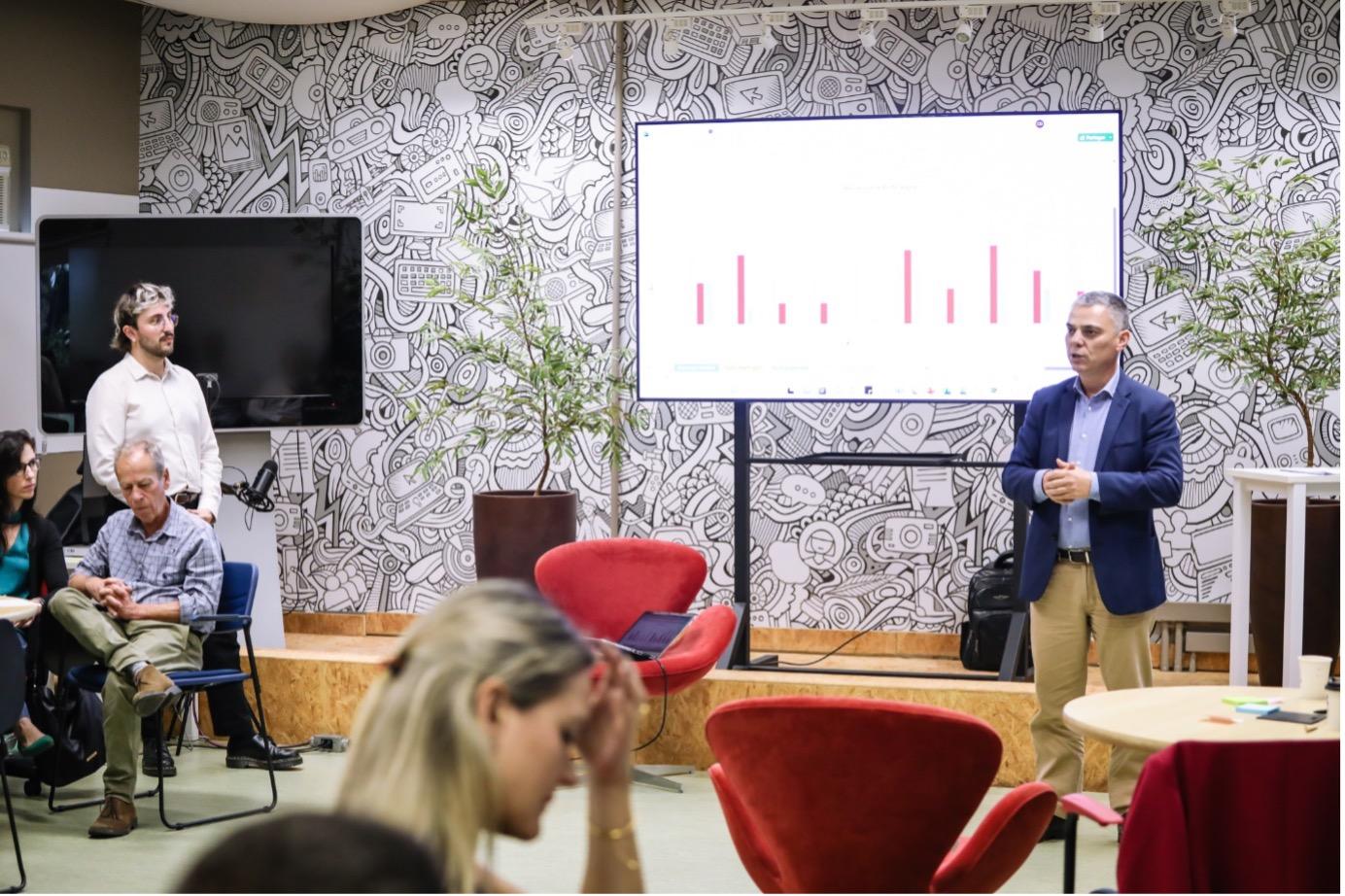Porto Alegre accelerates the review of its Resilience Strategy alongside MCR2030 and pledges to strengthen metropolitan governance

From 21-23 November, Porto Alegre held a series of urban disaster resilience activities organized with the support of the United Nations Office for Disaster Risk Reduction (UNDRR), in the framework of the Making Resilient Cities 2030 (MCR2030) initiative.
The events included an official meeting between Sebastião de Mello, Mayor of Porto Alegre, Ricardo Gomes, Deputy Mayor of Porto Alegre, Cassio Trogildo, Secretary for Local Governance and Policy Coordination, Mário Ikeda, Municipal Secretary for Security, and Clément Da Cruz, MCR2030 Technical Advisor, during which the ambition of Porto Alegre to be one of the first cities in the Latin American region to renew its Resilience Strategy (prepared in 2016 with the support of the former-100 Resilient Cities, now Global Network of Resilient Cities and partner of MCR2030) was reaffirmed. In addition, Porto Alegre's desire to apply for the title of MCR2030 Resilience Hub was confirmed, committing to submit its application during the Regional Platform for Disaster Risk Reduction to be held in Uruguay from 28 February to 3 March.
Porto Alegre's application to become a Resilience Hub is part of a wider process of strengthening the metropolitan governance of risks that the Gaucho capital started on November 21st when it held the 1st Metropolitan Seminar on Protection and Civil Defence - Building Resilient Cities, which was attended by Civil Defence Coordinators from 14 municipalities that make up Greater Porto Alegre.

1st Metropolitan Seminar on Protection and Civil Defense - Building Resilient Cities. Source: Rodger Timm / PMPA
The renewal of the Resilience Strategy was accelerated with the holding of a workshop to assess the resilience capabilities of Porto Alegre on November 22 and 23. The activity was attended by representatives of all municipal bodies that make up the Permanent Commission for Emergency Action (Copae), which collectively completed the UNDRR's Disaster Resilience Self-Assessment Tool for Cities (Scorecard), along with its Addenda on food systems and public health. After nearly 200 resilience indicators, participants assessed that the municipality had a solid capacity base for risk management and resilience, as shown in the many resilience actions already being implemented in Porto Alegre. Nonetheless, the tools’ results also pinpointed a need for the local government to scale up existing actions, reach out to all communities, and better integrate key resilience sectors such as public health and food security.
"The capital has its Municipal Resilience Plan instituted by law in 2019 and has several public policies and services in this regard. With the advice that was provided by the United Nations Office for Disaster Risk Reduction and the work done by members of the government during the workshop, we will evaluate results of the evaluation, aiming to regulate and improve our strategy of actions and also create a resilience committee."
Cassio Trogildo, Secretary for Local Governance and Policy Coordination and Director of Resilience in Porto Alegre

Cassio Trogildo, Secretario de Gobernanza Local y Coordinación Política y Director de Resiliencia de Porto Alegre, comenta los resultados del Scorecard y sus Adenda en Porto Alegre. Fuente: Rodger Timm / PMPA
Read more at the City of Porto Alegre’s institutional website: https://prefeitura.poa.br/smgov/noticias/porto-alegre-avanca-no-credenciamento-para-ser-hub-de-resiliencia-perante-onu (portuguese)

